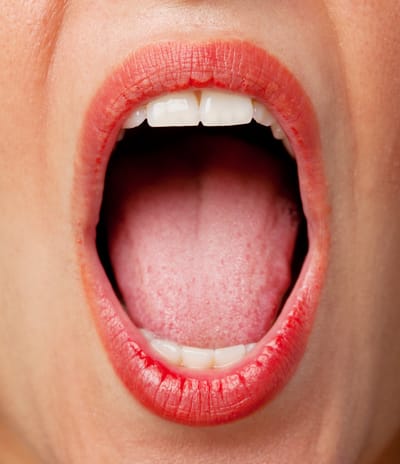
Halitosis, or as it’s more commonly known, simply bad breath, is caused predominantly by sulphur-producing bacteria that normally live on the surface of the tongue and in the throat.
Sometimes, these bacteria start to break down proteins at a very high rate and odorous volatile sulphur compounds are released.
Common causes of halitosis
Apart from the bacteria that colonise the back of the tongue, other causes include:
- Dental factors, such as infection (periodontitis) or poor oral hygiene
- Dry mouth, often the result of medicine, alcohol, stress or an existing medical condition
- Smoking
- Acid reflux from the stomach
- Post-nasal discharge
- Medical conditions such as kidney failure, metabolic dysfunctions, and biochemical disorders
- Certain foods, such as onions, garlic or cauliflower, although their effects are short-lived.
Symptoms of halitosis
- A white coating on the tongue especially at the back of the tongue
- Dry mouth
- Build up around teeth
- Post-nasal drip or mucous
- Particularly bad morning breath
- Thick saliva and a constant need to clear your throat
- Constant sour or bitter metallic taste.
How to treat halitosis
There is no one treatment for halitosis, as the treatment will depend on what is causing the problem. However, practicing good oral hygiene, including brushing and flossing twice day, is crucial.
A tongue brush or tongue scraper can also help.
People with chronic sinusitis may find the use of a saline nasal spray helpful. A course of antibiotics, effective against anaerobic bacteria (such as metronidazole, to reduce the overgrowth of sulphur-producing bacteria), may also help.
Speak to your dentist or hygienist to determine the most effective treatment for you. Call one of our friendly reception staff to make an appointment.
